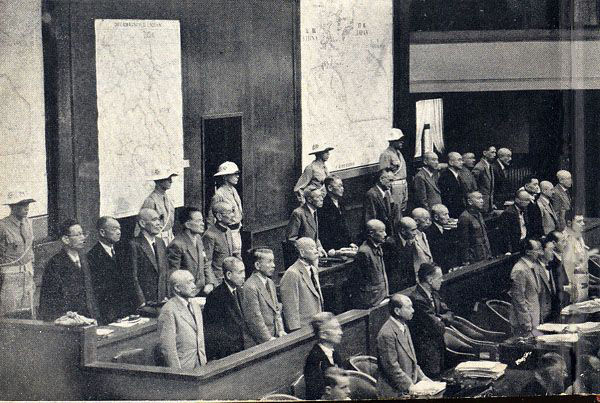On 29 April 1946, the International Military Tribunal for the Far East indicted 29 Japanese officials, military leaders, diplomats, and even philosophers. The charges included conspiracy against peace, murder, conventional war crimes, and crimes against humanity. Among the atrocities considered was the Nanjing Massacre in China which was an act of such hitherto unimagined butchery that even the SS officers stationed in the Far East complained to Hitler about its extreme brutality having witnessed it at first hand.
The Tribunal was established by the Potsdam Conference on 19 January 1946 and comprised representatives from 11 countries: the USSR, the United States, the United Kingdom, China, France, Australia, Canada, New Zealand, the Netherlands, India, and the Philippines.
Of the 29 defendants indicted, only 28 made it into the dock as former Japanese Prime Minister, Prince Fumimaro Konoe committed suicide on 16 December 1945 by potassium cyanide poisoning. Foreign Minister Yosuke Matsuoka and Admiral Osami Nagano died in prison during the trial (on 26 June 1946 and 5 January 1947 respectively) while Shumei Okawa, philosopher and ideologue of Japanese militarism, was ruled insane because of syphilis and all charges against him were dropped. He was kept for a few years at the Tokyo Metropolitan Matsuzawa Hospital, a famous mental asylum, where he completed a Japanese translation of the Quran, and died at home on 24 December 1957.
The first session of the Tokyo Tribunal took place on 3 May 1946, the last session was on 12 November 1948.
























